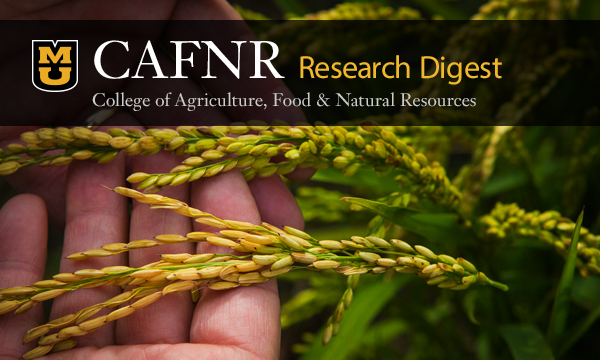|
The United States Department of Agriculture (USDA) National Institute of Food and Agriculture (NIFA) recently invested $23 million to help boost organic farming and ranching. NIFA awarded 12 Organic Transitions Program (ORG) grants totaling $5.6 million to support research, education and extension efforts to help existing and transitioning organic livestock and crop producers adopt organic practices and improve their market competitiveness. Mary Hendrickson (above left), associate professor of rural sociology in the University of Missouri College of Agriculture, Food and Natural Resources (CAFNR), and Kerry Clark (above right), director of CAFNR International Programs and assistant research professor of rural sociology in CAFNR, were the recipients of one of the ORG grants, for more than $420,000. Their project is titled “Understanding and Overcoming Barriers to Adoption of Organic Agriculture in the Mid-South.” “The goal of this research is to identify adoption challenges specific to the Mid-South, and to offer insights about specific policy supports, agricultural research, organic processing infrastructure development and market development needed in the region,” Hendrickson said. “By identifying and better understanding these challenges, extension, university and governmental agencies will be better equipped to serve producers in the region.” The specific objectives of this project include identifying region-specific economic, social and biophysical barriers to USDA Certified Organic adoption in the Mid-South, a region including parts of Missouri, Oklahoma, Arkansas and Tennessee. Hendrickson and Clark will also work to identify region-specific opportunities and farmer-led innovations that could increase USDA Certified Organic farm numbers and acreage, as well as identify public policy measures that have impacted organic adoption in other regions and explore their feasibility for the Mid-South. Extension objectives include developing and implementing an outreach program for farmers and educators addressing specific challenges and opportunities identified by this research, and supporting new, and strengthening emerging, networks of producers that can support peer-to-peer learning, develop collective methods to secure inputs and pursue marketing opportunities. Hendrickson and Clark will be working with the Kerr Center for Sustainable Agriculture, located in Oklahoma, on the project. |
